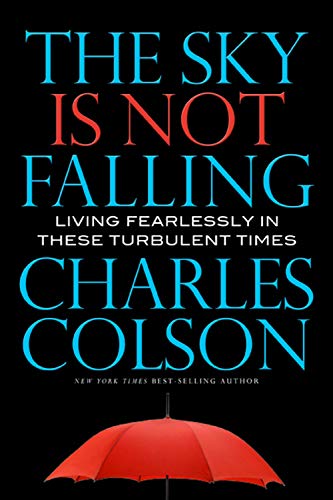‘Patience: Why You Need It; How To Get It’
For ye have need of patience, that, after ye have done the will of God, ye might receive the promise – Hebrews 10:36.
Patience matters. It is a Biblical virtue, part of the fruit of the Spirit, and indispensable for surviving and thriving in the last days. Most importantly, along with faith, it is a key to obtaining the promises of God.
This is our third and final part of the series on patience. Part One was an introduction to this subject with an amplified definition and description. To access Part One, click this link. http://majdali.blogspot.com/2023/09/patience-key-to-unlocking-blessings-of.html
Part 02 spoke about the patience of Job; he is a great case study of patient endurance and experiencing the mercy and compassion of God during trials. For Part 02, click this link:
http://majdali.blogspot.com/2024/02/patience-key-to-promises-of-god-part-02.html
In Part Three, we focus on the practical side: the benefits of patience and why you need it. Also on how to harness patience in your life.
Benefits of Patience
Promotion and enlargement: Everyone likes the notion of ‘getting ahead,’ making progress, reaching and exceeding goals, winning the race and obtaining the prize. The reason many fail to reach their goals is because they do not know or are not prepared to pay the price of achievement. David learned a key secret: if you are going to be enlarged in personal capacity or opportunity, you must pass the stress test. Psalm 4:1: ‘Thou hast enlarged me when I was in distress.’ (also Psalm 18:18-19; 118:5). Patiently endure the trying times and you will graduate to the next level.
Fruitfulness for God: God looks for much fruitfulness from those who are redeemed in Christ. It is no mystery how to be fruitful: abide in the vine (John 15:1-14). But remember that the journey is often longer than we imagine. You don’t just plant the seed in the morning and expect a harvest that evening – you have to patiently wait. In explaining the parable of the sower, Jesus tells us in Luke 8:15: But that on the good ground are they, which in an honest and good heart, having heard the word, keep it, and bring forth fruit with patience. Patiently keep God’s Word in your heart and you will have a bumper crop.
Reigning with Christ: Much of the patient endurance we must exhibit is in relation to the coming of the Lord (James 5:7-8), either His parousia which is His second coming; a visible, personal, bodily return. Or it could be His spiritual visitation in revival or renewal (Acts 3:19). If, in the walk of faith, we suffer for Christ, we will also reign with Him (2 Timothy 2:12). Twice in the Book of Revelation it calls us ‘kings and priests’ to God (1:6; 5:10).
Promises of God: This is the prime benefit of patience – you will see with your eyes the fulfilment of the promises of God (Hebrews 6:12, 15; 10:36). Fruitfulness comes to the mature who are willing to wait.
How to Be Patient
This list is by no means comprehensive but it provides a good start.
Fruit of the Spirit: Remember that patience is one of the nine fruits of the Holy Spirit (Galatians 5:22), though it may be translated as long-suffering or endurance. Learn to be filled with the Spirit (Ephesians 5:18) and you get the fruit as a bonus.
Submit to God while simultaneously resisting the devil – who will flee from you (James 4:6-10). God will give you ‘more grace’ and in it will be all the patience you need.
Rejoice always (Philippians 4:4) and especially in times of trial (Romans 5:3; James 1:2-4). It is possible to rejoice in trouble when you have the fullness of the Spirit and ‘more grace.’ Trouble leads to patience, which leads to experience of approved character, which leads to hope, and hope does not shame us (Romans 5:3-5). If you choose the way of joy and rejoicing, God will work in the heavens while you are celebrating on earth.
While this is not a Bible verse, it is consistent with Biblical living. It is the British war-time slogan: Keep calm and carry on. Patience is developed in the crucible of life’s challenges. Keep going – in grace and patience – and you will see the glory of God.
Finally, we end this article with an excerpt from The Word for Today quarterly devotional that serves as a parable on patience:
‘and let us run with patience the race that is set before us — Hebrews 12:1ff
SUCCESS: Just beyond the splat:
The story is about a traveller who met a leadership expert along the road and asked him, ‘Where’s the road to success?’ The expert didn’t speak but instead pointed to a place off in the far distance. The man, thrilled at the prospect of quick and easy success, rushed off in the direction indicated. Splat! Down he went! He limped back, bruised and stunned. Assuming he must have misinterpreted the message, he repeated his question, and again the expert pointed silently in the same direction. So the traveller took off once more. This time the splat was deafening. Crawling back bloodied, broken and angry, he shouted at the expert, ‘I asked you which way is success! I followed the directions you indicated, and all I got was splattered! No more pointing—talk!’
Finally, the expert opened his mouth and spoke. ‘Success is that way. It’s just a little beyond the splat.’
The fact is, all of us have experienced ‘the splat’. There’s no way to avoid it. But it’s what we do after the splat that makes all the difference. And perseverance always wins. The Bible says: and let us run with patience the race that is set before us.’
The Word for Today 29 May 2021. Courtesy of Vision Christian Media vision.org.au





